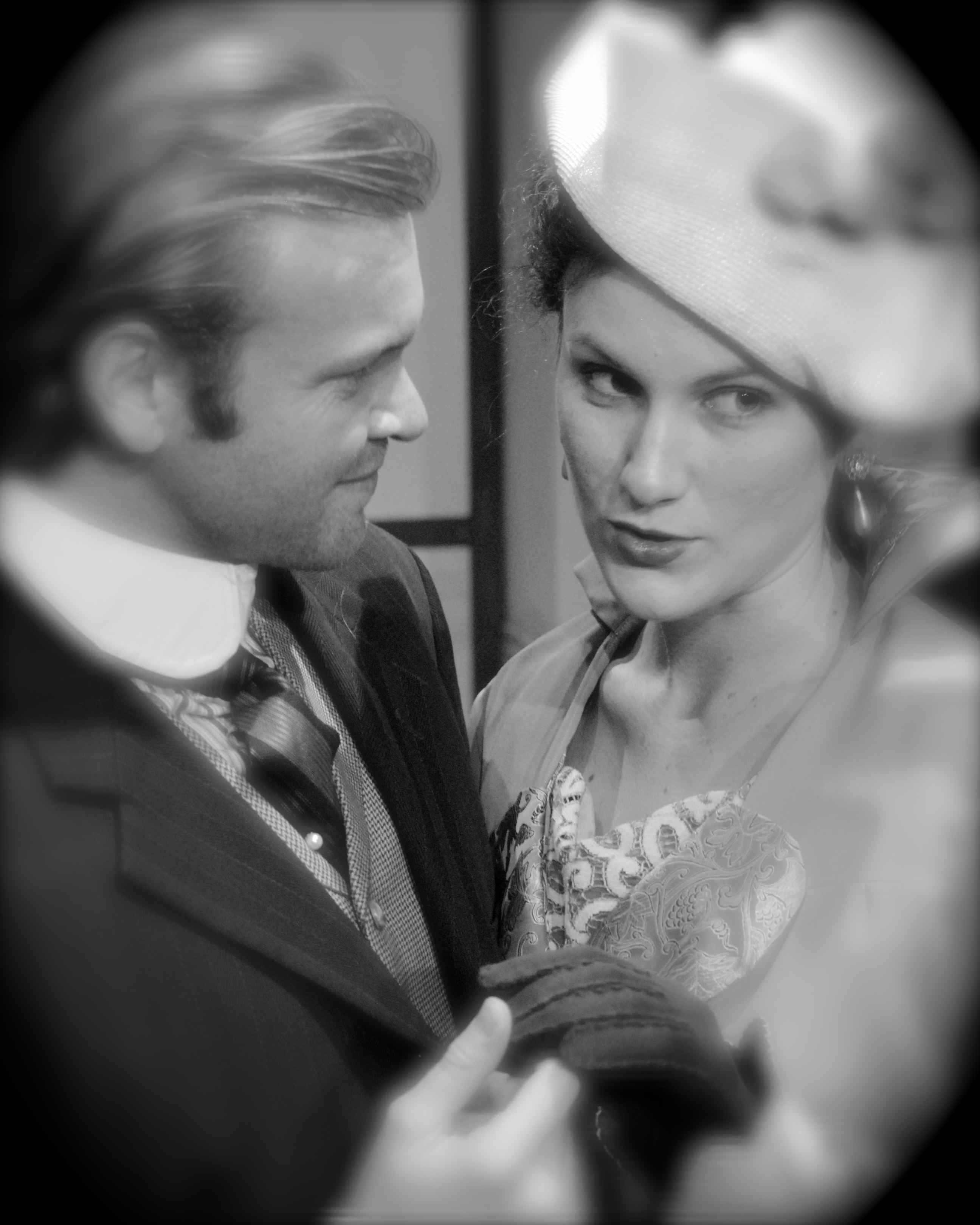 Once you understand why the first act of Richard Greenberg's "The Violet Hour," directed by Sharyn Case for the Long Beach Playhouse's Studio Theatre, took so long to set up (the key is in final sentence), you realize how the structure of this fine show embodied its title. One of the characters defines the violet hour as a unique-to-New-York transition from day to night, whose sweet tint acknowledges your participation in, if not survival of, that particular day. It's a moment to reflect and consolidate before plunging into the evening, if not the future.
Once you understand why the first act of Richard Greenberg's "The Violet Hour," directed by Sharyn Case for the Long Beach Playhouse's Studio Theatre, took so long to set up (the key is in final sentence), you realize how the structure of this fine show embodied its title. One of the characters defines the violet hour as a unique-to-New-York transition from day to night, whose sweet tint acknowledges your participation in, if not survival of, that particular day. It's a moment to reflect and consolidate before plunging into the evening, if not the future.
Performances were imaginative and engaging. At times the characters had to speak while facing an imaginary wall or window. To do so they looked out at the audience. These indirect addresses to us that confirmed the identities of each character was not constructed by words on a page but by real people, with depth and emotion, speaking the lines with poetic reverence. They created a supercharged intimation of what would happen if one had the opportunity to look into the future with a not-seen-on-stage contraption -- not copier, a fax, or a printer but an oracle -- that spewed out pages of stories that showed the way that things would be provided a particular course of action was taken.
The last sentence of the first act apprised us of the machine's orphic powers. Until that moment the story slogged along in exposition. Slow to develop, the production felt thin. Was it just the story of John (Adam Hale), a young man, with a black mistress on the side, who has to decide which of two books (that of his mistress, Jessie - Doshanna Bell - or his best friend, Denny - Alex Walters) would be the first -- if not the last -- book he publishes?
The machine accelerated an is-that-all-there-is story into a sweet tale that asks whether we're governed by fate or free will or whether the question is even relevant. Of course it isn't relevant, which is the point of the story. This allows us to focus on the fleeting, transient, and lovely present moment described by the production's title.
The elasticity of his face and his plaintive voice well served Sean Gray's hilarious Gidger, John's put-out personal assistant. His exasperation permeated his every little concern, from the unread manuscript he had submitted for publication, his function as John's gatekeeper/factotum, his dumbfoundedness with that new fangled machine that suddenly appeared in his office and even his relationship with his dog.
Hale's John looks like the Princeton alum -- proper, angular, hungry and ready to take on the world. His words and his appearance conveyed confidence, optimism and ability but his voice and his gestures suggested otherwise. He was both ambitious and nervous. He had a stiff upper lip but you could read in his eyes that he had no clue what would happen as he tried to predict the future.
Walters' Denny looks like the kind of guy that would write an unwieldy manuscript that filled three filing cabinet drawers: unedited, disheveled and Irish (think James Joyce's "Finnegan's Wake"). Exalted speech and gestures, though not as hilariously manic as those of Gray's Gidger, gave him the sense of a mad, working class genius on the brink of either fame or disaster.
Bell's resonant voice and proud carriage convinced us of the veracity of Jessie as-jazz-singer but it was her gestures and expressions when she wasn't talking that best conveyed the accelerating desperation of a woman racing against time to have her story told.
But the real gem of a fine ensemble effort was of Denny's girlfriend Rosamund (Caitlyn Tella). Tella's performance best suggested the gravitas and monumentality of being firmly rooted in the present moment. Her annunciation and the coordination of emotion and gesture made her seem as solid and magniloquent as the skyline glimpsed out the window.
Performances are 8pm, Fri 7 Sat, 2pm, Sun. The show runs until Aug. 7. Tickets are $12-22. The Playhouse is located at 5021 E. Anaheim St. For more info call 494-1014, ext. 1, or visit www.lbplayhouse.org.
